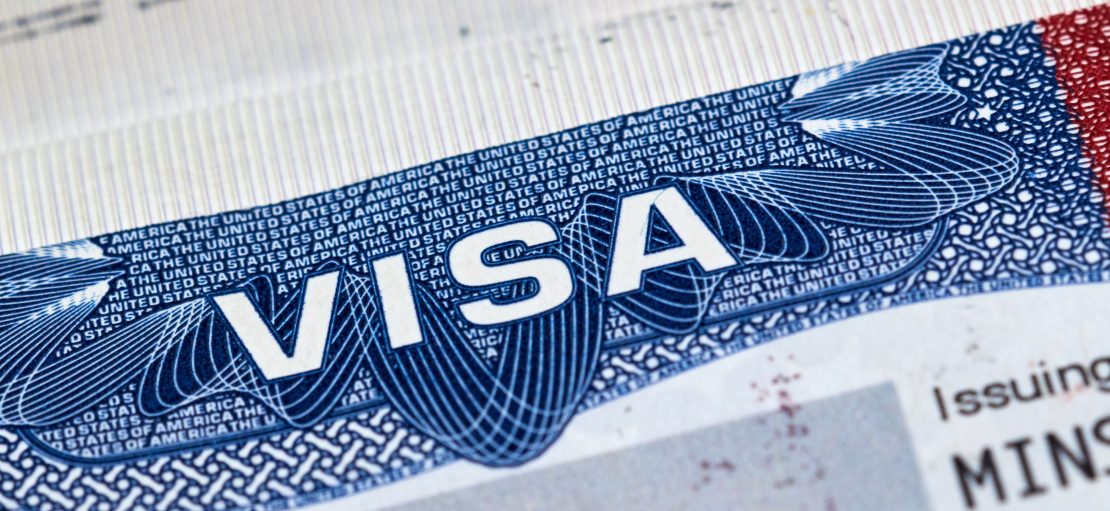ABIM leaders Furman S. McDonald, MD, MPH, President and CEO, and Erica N. Johnson, MD, FACP, FIDSA, Senior Vice President for Academic and Medical Affairs, have submitted the following letter to Kristi Noem, United States Secretary of Homeland Security, regarding proposed changes for J-1 visa holders that could have negative consequences for physician education and patient care.
September 29, 2025
The Honorable Kristi Noem
Secretary of Homeland Security
Washington, DC 20528
Dear Secretary Noem,
On behalf of the American Board of Internal Medicine (ABIM), a physician-led, nonprofit, independent evaluation organization accountable to both the profession of medicine and to the public—and the largest member board of the American Board of Medical Specialties (ABMS), certifying over 270,000 physicians (one out of every four physicians in the United States)—we write to recommend in the strongest possible terms that the Department of Homeland Security preserve the process for extending the period of authorized stay for certain nonimmigrant visa classifications by retaining “duration of status” as an authorized period of stay for J-1 visa holders, especially physicians holding J-1 visas.
First and foremost, the proposed change to eliminate “duration of status” will have considerable negative consequences on the training of physicians with J-1 visas, the organizations in which they train, and most importantly and most devastatingly, on the patients they serve.
Specifically:
- The current duration of status system for J-1 physicians, which has been in place for decades, has served medical education and patient care well. J-1 physicians are also a tightly monitored cohort. For more than 30 years, Intealth has been designated by the U.S. Department of State (DOS) as the sole J-1 visa sponsor for foreign national physicians in U.S. graduate medical education (GME). In this role, Intealth already conducts a rigorous annual review for each physician which assures DOS that these physicians are compliant with J-1 visa requirements and progressing through their training programs as planned. The proposed change will not yield new or better information about this already carefully monitored cohort.
- International physicians are essential to the U.S. healthcare system. There are more than 15,900 J-1 physicians participating in GME in the United States. Many internal medicine residencies and subspecialty fellowships, including many in rural, medically underserved areas and in medical safety net hospitals, are filled completely by international medical graduates on J-1 visas. Patients in these communities rely on these physicians to receive the excellent care they deserve. Without these physicians, their access to health care will be severely limited.
- Attainment of competency through the supervised practice of medicine takes time. Internal medicine residency training requires a minimum of three years. Internal medicine subspecialty fellowships range from one to three years, depending on the discipline; so, usual and necessary total training durations are very often more than four years. This is a very important difference for physicians in training with J-1 visas compared to more standardized four-year undergraduate study programs. Delays in the progression of J-1 physicians through training will delay the time required to become certified physicians, thus limiting the numbers of well-trained physicians entering the U.S. workforce at a time when the healthcare system is under unprecedented strain.
- Training program schedules are highly dependent on a reliable cohort of physicians, and optimal education and assessment of physicians in training programs requires their uninterrupted presence. Training programs have systems in place to accommodate some types of routine disruptions, such as parental or medical leave, and extensions in training time to develop clinical competence. Requiring United States Citizenship and Immigration Services (USCIS) filings for each visa extension converts routine educational adjustments into immigration adjudication events with the potential for prolonged disruption, adding uncertainty, delay and risk to individual physicians, training programs and communities.
This rule change is unnecessary for the already closely monitored J-1 physician cohort and will significantly and adversely affect the training of physicians, the patients they serve and the health of our nation. For these compelling reasons, we respectfully urge you to preserve the “duration of status” for physicians in training with J-1 visas.

Erica N. Johnson, MD, FACP, FIDSA
Senior Vice President, Academic and Medical Affairs
American Board of Internal Medicine

Furman S. McDonald, MD, MPH
President and CEO
American Board of Internal Medicine
Professor of Medicine



